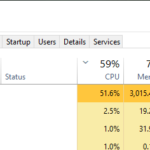Ever wonder how networks know exactly how many people are watching a TV show? In order to measure television viewing habits, a rating system is the traditional method used in most regions. The Nielsen Company uses devices that track the viewing habits of television viewers in many countries, including the United States. To monitor our viewing habits, the Nielsen Company collects information from traditional devices that are attached to thousands of televisions in their network. This information measures the average viewership of a show, which helps networks to decide to include their ads during certain programs and charge more for popular shows.
Table of Contents
The Nielsen Company

These statistics are collected by the company, and it’s their job to collect information about everything from what you watch on television to your personal demographics. It was founded in 1923, but these days it has expanded its reach beyond traditional TV to include things like mobile devices and streaming services such as Netflix.
Nielsen ratings provide important data for networks because they help them decide which shows should be renewed or canceled based on viewership numbers.
The Nielsen Company tracks TV viewing habits through a representative sampling of about 25,000 households that allow the company to record what programs are being watched.
How the Information Is Gathered
Nielsen uses devices that are attached to the television set in the house which records what people are watching on their televisions. Every time the Nielsen box detects that a television in a particular household is turned on, it registers and records when the television turns off.
When multiple viewers watch a program, each one fills out information about his or her age and gender. Those info also can be trakced. These viewer-specific details set information gathered by a cable box apart from data collected by Nielsen.
This information is collected by Nielsen and provides data for networks. Networks use this data to make decisions on things such as renewing or canceling a show based on its viewership numbers.
How Nielsen Use These Information
Nielsen, the company that gathers and provides this information, has a goal of making sure all Nielsen rating boxes are properly installed in a household. These boxes track what programs are being watched on the television set and provide viewers of the show with information about the program they’re watching.
The increased use of digital platforms has made it more difficult for networks to measure their show’s viewership because these services do not have an analog equivalent to The Nielsen Company’s devices. However, Nielsen ratings still provide important data for networks because they help them decide which shows should be renewed or canceled based on viewership numbers.
The Nielsen Company also provides a second rating, the commercial rating. The commercial rating is based on viewing of commercials; this number has value to networks because it’s used to sell ads. Commercial ratings show how many people are watching commercials, as opposed to recording or channel-changing. Advertisers care more about commercial ratings than general advertisement rating because those who switch away from the ads don’t have a significant impact on the company’s bottom line.






With almost no loçal television stations broadçàstiñg, how cañ yóu say how many peópl are watçhiñg what? Your ratings mean nothing!
Adverts are commercial; they are a part of commerce; but adverts are not commercials. You need to differentiate between “commercial” and “advert”.